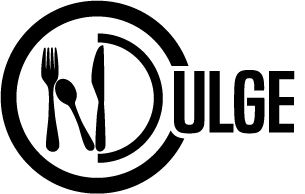Restaurant Cost Management 2025: How April 2 Tariffs Will Impact Your Business
- Admin
- Mar 13, 2025
- 3 min read

The Big Question: How Will This Impact Your Bottom Line?
Rising costs, shrinking margins, and new tariffs—are you ready?
On April 2, 2025, new tariffs on imported goods will officially take effect, impacting restaurant cost management 2025 strategies, increasing the cost of essential restaurant ingredients, equipment, and supplies. For restaurant owners and industry decision-makers—CEOs, COOs, and CFOs who are already managing rising labor costs, inflation, and economic uncertainty, this presents yet another financial challenge.
The time to protect profitability isn’t after tariffs hit—it’s right now.
What’s at Stake? The Financial & Operational Impact of Tariffs on Restaurants
Once these tariffs go into effect, restaurant businesses will need to reassess their restaurant cost management 2025 strategies and may experience:
Higher Food & Supply Costs
Increased Import Prices: Tariffs on imports from Canada, Mexico, and China could raise food prices by up to 25%, affecting items like avocados, seafood, and specialty beverages. (Tastewise)
Industry-Wide Impact: The National Restaurant Association estimates these tariffs could cost the industry $12.1 billion, resulting in a 30% profit loss for independent operators. (GlobeSt)
Supply Chain Disruptions & Ingredient Shortages
Packaging Costs: Tariffs on steel and aluminum imports are expected to increase production costs for canned goods, impacting beverages, canned vegetables, and soups. (Food Institute)
Operational Challenges: Restaurants may struggle to secure essential ingredients, forcing menu modifications and potentially disappointing customers.
Logistical Bottlenecks: COOs must prepare for longer lead times, increased shipping costs, and unpredictable availability of key products.
Pricing Pressure & Profit Erosion
Consumer Sensitivity: Raising menu prices to offset costs risks customer loyalty and traffic declines.
Margin Compression: Absorbing the extra costs without a strategic plan will hurt the bottom line.
Operational Inefficiencies: COOs will need to optimize staffing, inventory management, and vendor relationships to mitigate rising costs without sacrificing service quality.
Restaurant Cost Management 2025: Three Steps to Take Before April 2 to Protect Your Business
To maintain effective restaurant cost management 2025, instead of scrambling to react after prices spike, restaurant leaders should take these strategic steps now:
1. Renegotiate Supplier Contracts & Lock in Pricing
Review Current Agreements: Identify opportunities for cost savings in existing vendor contracts.
Secure Fixed Pricing: Negotiate fixed-price contracts for high-volume ingredients before tariffs take effect.
Explore Alternative Suppliers: Identify domestic vendors who can provide tariff-free products without compromising quality.
Improve Vendor Communication: Ensure suppliers can commit to stable delivery schedules to avoid last-minute shortages.
2. Strengthen Local & Domestic Sourcing
Build Local Partnerships: Reduce reliance on imports by collaborating with local farmers and producers.
Enhance Supply Chain Resilience: Diversifying suppliers helps mitigate risks associated with tariffs.
Appeal to Consumer Preferences: Emphasizing locally sourced ingredients can enhance brand value and customer loyalty.
Create a Contingency Inventory Plan: COOs should work with their teams to stock essential non-perishable goods before tariff-induced price hikes hit.
3. Engineer Your Menu for Profitability & Agility
Analyze Menu Performance: Identify high-margin, low-cost items to prioritize.
Incorporate Seasonal Ingredients: Designing menus around seasonal and locally available ingredients can keep costs under control.
Maintain Flexibility: Ensure your menu can pivot quickly if certain ingredients become cost-prohibitive.
Train Kitchen Teams for Ingredient Swaps: COOs should implement training programs to help chefs and kitchen staff adjust recipes when key ingredients become unavailable or too costly.
NDulge Restaurant Consulting: Helping You Stay Profitable & Competitive
At NDulge Restaurant Consulting, we specialize in helping restaurant brands navigate rising costs, negotiate smarter supplier deals, and optimize menus for maximum profitability.
If your restaurant group isn’t actively planning for tariffs, labor cost increases, and inflation, your bottom line is at risk.
Let’s talk about how to future-proof your restaurant’s profitability. Schedule a consultation today.







Comments